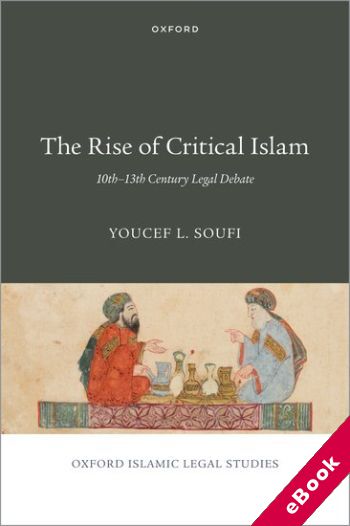
The device(s) you use to access the eBook content must be authorized with an Adobe ID before you download the product otherwise it will fail to register correctly.
For further information see https://www.wildy.com/ebook-formats
Once the order is confirmed an automated e-mail will be sent to you to allow you to download the eBook.
All eBooks are supplied firm sale and cannot be returned. If you believe there is a fault with your eBook then contact us on ebooks@wildy.com and we will help in resolving the issue. This does not affect your statutory rights.
In a richly narrated historical study, Youcef Soufi excavates an Islamic legal culture of critique from the 10th to 13th centuries. Focusing on the practice of munāẓara (disputation), Soufi explores how and why oral debates became a pervasive and revered part of the intellectual legal landscape of Iraq and Persia. Using the life and career of celebrated Iraqi jurist Abū Isḥāq al-Shīrāzī, he traces the formalization of debate gatherings at the dawn of the classical legal schools (al-madhāhib) in the early 10th century and analyzes the wider institutional, social, and discursive conditions that made debate an important feature of any jurist's practice.
Pushing back against claims that classical Muslim jurists sought to weed out differences of opinion, The Rise of Critical Islam presents a community committed to the openness, fluidity, and continued exploration of the law. Challenging the view of debate gatherings simply as mechanisms of doctrinal resolution before codification, the study reveals a classical culture where critical debates were part of a continual and personal quest to discover God's law. In uncovering this classical legal culture, Soufi invites readers to question claims about the promise of secular critique in disciplining religious passions and forging human solidarity.